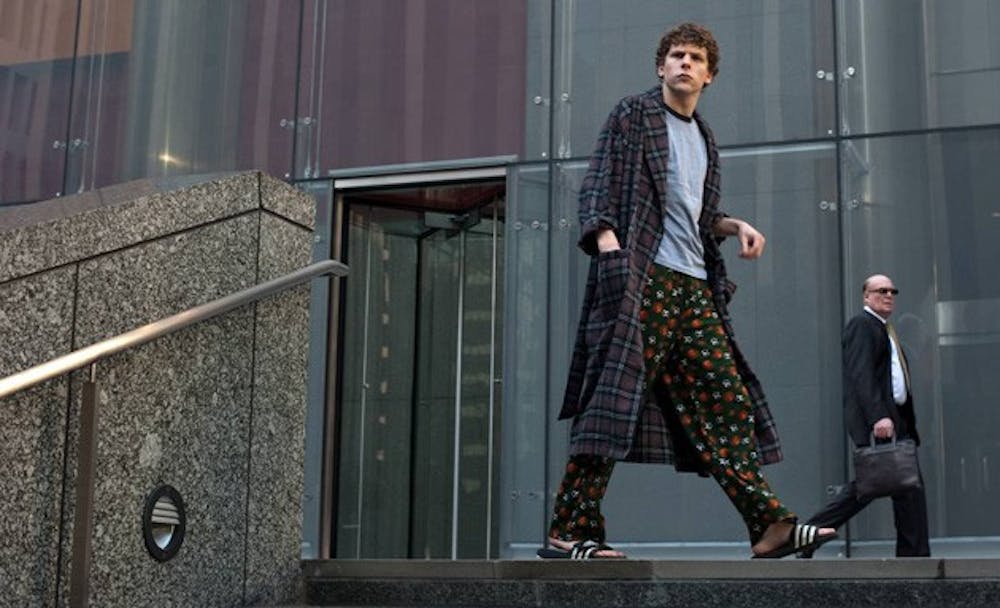David Fincher’s The Social Network is an entertaining, well-crafted and compelling dramatization of the invention of Facebook, the subsequent legal battles for its control and the personal fallout for its primary creator, Mark Zuckerberg.
Using Ben Mezrich’s non-fiction book The Accidental Billionaires as source material, writer Aaron Sorkin spins a narrative revolving around the testimony given in two lawsuits levied against Zuckerberg (Jesse Eisenberg)—the first by his close friend and co-founder, Eduardo Saverin (Andrew Garfield), the second by Harvard classmates Tyler and Cameron Winklevoss (both played by Armie Hammer). Scenes alternate between Cambridge and Silicon Valley, where Napster founder and confidence-man-cum-entrepreneur Sean Parker (Justin Timberlake) mentors Zuckerberg.
Sorkin’s central claim about Zuckerberg is that the character’s emotional angst, stemming from social ineptitude, failed relationships and elitist exclusionism, develops a Nietzschean-style ressentiment directed against the more ostensibly successful. Zuckerberg’s only power is programming, and he creates high technology to rectify what he sees as social injustice. Zuckerberg’s first web venture of the film, drunkenly written after being dumped, asks users to compare the attractiveness of Harvard female undergrads. He secretly desires the social recognition offered by Harvard’s final clubs—fraternities with multi-million dollar endowments—and resents Saverin and the Winklevoss brothers for being members.
Facebook, Sorkin implies, is Zuckerberg’s revenge against the rich, privileged and attractive—a claim, since levied against a living person, that is morally problematic.
The film, with a script and actors, is far from a documentary. Yet Sorkin publicly maintains that The Social Network, if not whole truth, is a true representation of the court testimony from Zuckerberg, Saverin and the Winklevoss brothers.
Regardless, Fincher has a documentary-esque attention to detail. Real-life Zuckerberg does indeed wear Patagonia R4 jackets; his favorite beer is, in fact, Beck’s lager. In an elaborate visual joke, we see Zuckerberg furiously scribbling in a legal pad during the first three-quarters of the film’s deposition scenes. In a final, flippant gesture, Zuckerberg turns the page to reveal spaceship doodles.
Fincher tautly paces the film and it steadily accelerates from a 10-minute opening scene to a frenetic zone of fast cuts, crack cocaine and burning beds—emphasizing Facebook’s meteoric rise and rabidly competing claims to its proprietary. Sorkin writes for Zuckerberg the hopscotching, nonlinear speaking form of manic genius, contrasting his coldly explosive utterances with the controlled, nuanced delivery of those around him.
The writer and director have beautifully conveyed a complex portrait of genius, anti-hero and tragic figure. And ultimately, Zuckerberg’s story strikes close to home for Duke undergrads: In a field of competitors with such numerous external advantages, how can I make a name for myself? And most importantly, how can I be happy here?
Get The Chronicle straight to your inbox
Signup for our weekly newsletter. Cancel at any time.

